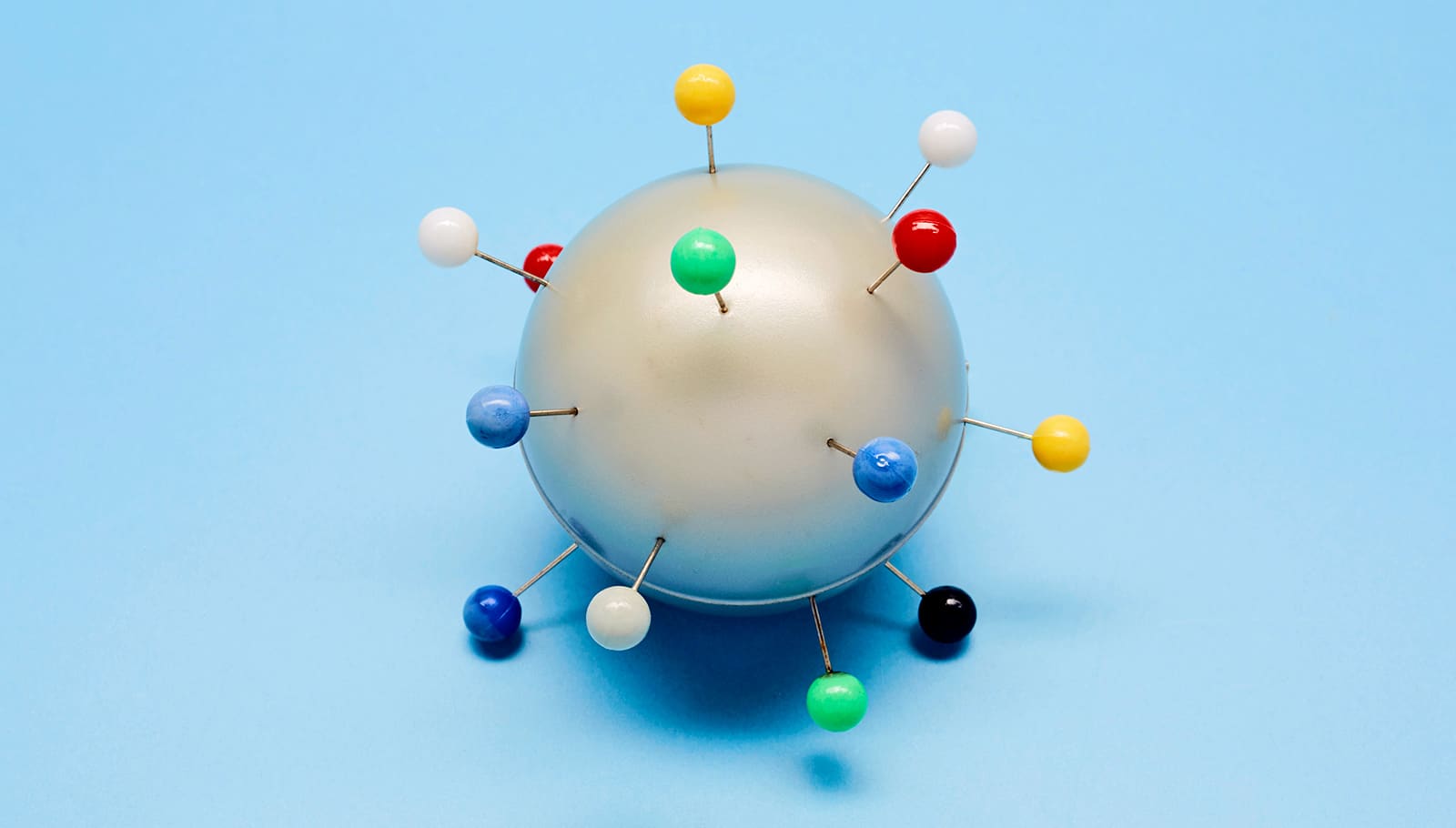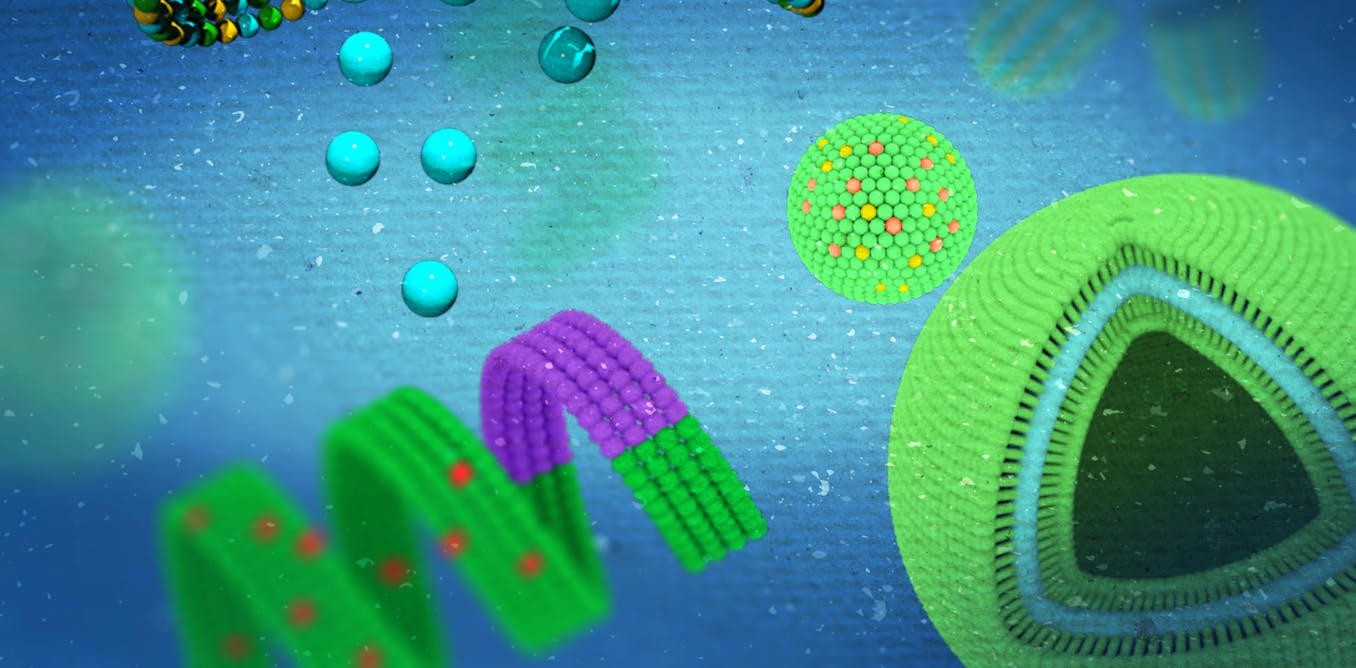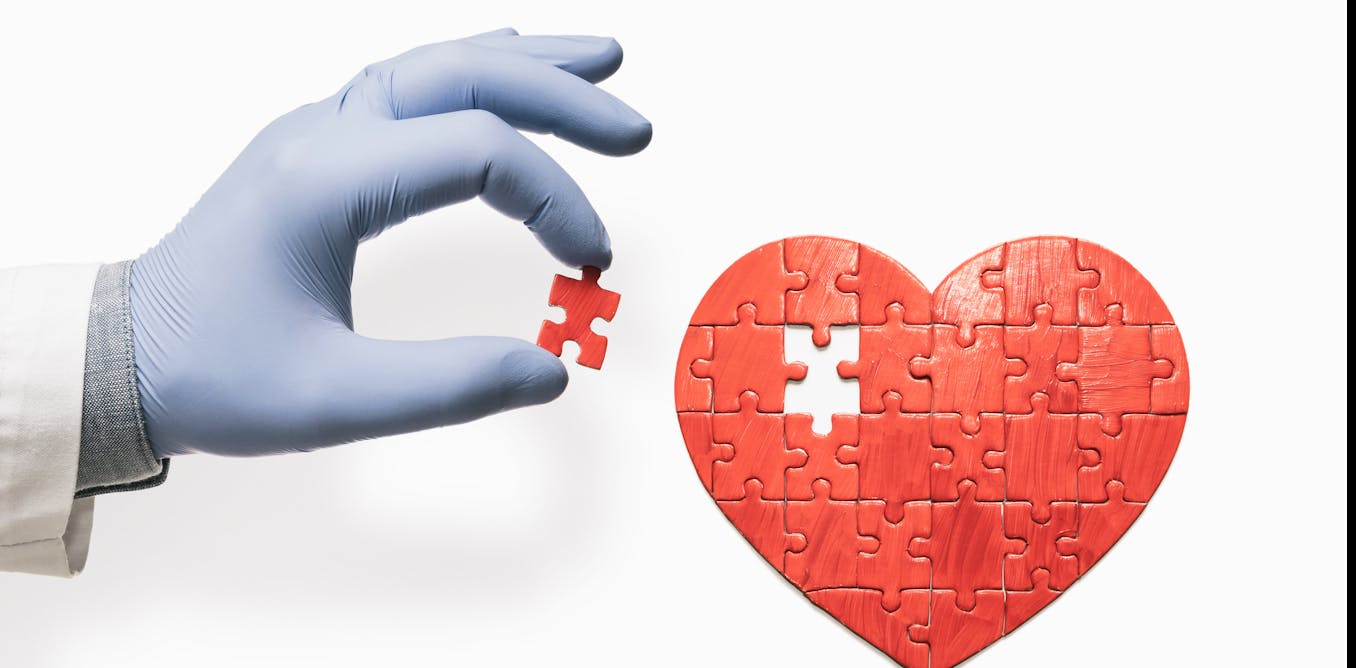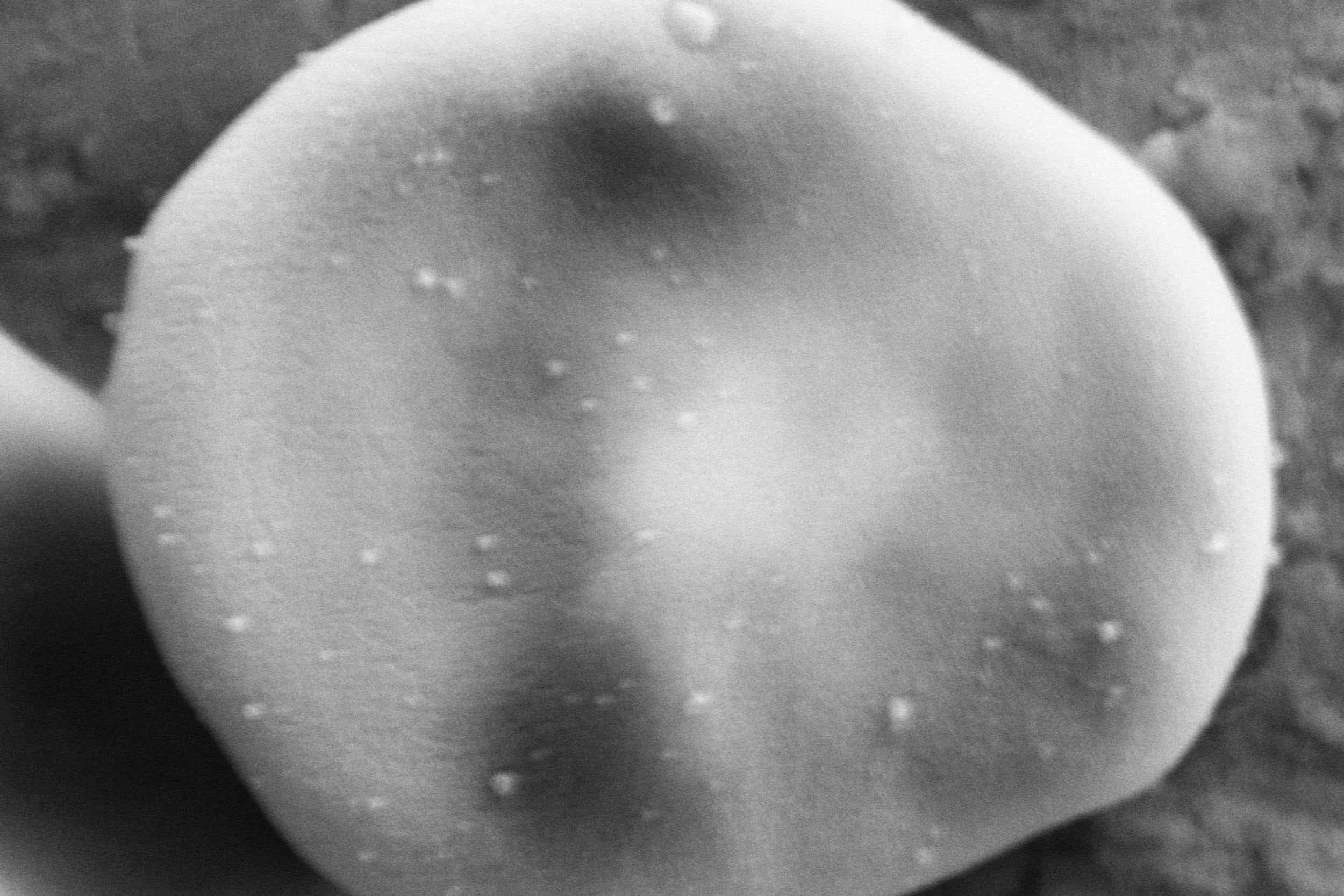Nanoparticles will change the world, but whether it's for the better depends on decisions made now
Nanoparticles have contributed to profound medical advances like the COVID-19 vaccine, but without oversight, they pose ethical and environmental issues.
Sept. 7, 2023 • ~9 min
Could a single drug treat the two leading causes of death in the US: cancer and cardiovascular disease?
Cardiovascular disease and cancer share many parallels in their origins and how they develop. Nanoparticles offer one potential way to effectively treat both with reduced side effects.
Sept. 6, 2023 • ~9 min
Nanomedicines for various diseases are in development – but research facilities produce vastly inconsistent results on how the body will react to them
The proteins that cover nanoparticles are essential to understanding how they work in the body. Across 17 proteomics facilities in the US, less than 2% of the identified proteins were identical.
Jan. 5, 2023 • ~5 min
Nanoparticles are the future of medicine – researchers are experimenting with new ways to design tiny particle treatments for cancer
The COVID-19 mRNA vaccines put nanomedicine in the spotlight as a potential way to treat diseases like cancer and HIV. While the field isn’t there yet, better design could help fulfill its promise.
May 4, 2022 • ~9 min
Harvard researchers look toward nature to beat cancer
Every year, more than 18 million people around the world are told, “You have cancer.” In the U.S., nearly half of all men and more than one-third of women will develop some kind of cancer during their lifetimes, and 600,000-plus die from it annually. Despite the billions of dollars and countless new treatments that have […]
March 1, 2019 • ~24 min
Study finds unexpected long-range particle interactions | MIT News
Spinning cells could attract each other across surprisingly long distances.
April 11, 2016 • ~6 min
/
1






